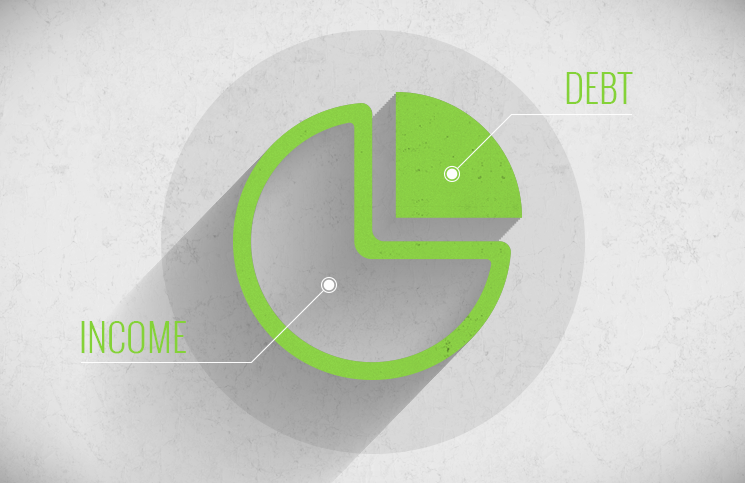What is it and How Does it Affect Me?
At its core, a debt-to-income ratio is exactly that: a comparison between the amount of debt you have versus the amount of money you make. From a lender’s perspective, if you have more debt than income or your ratio is high enough to where it’ll take you a long time to get things under control, it doesn’t make financial sense to approve you for something as big as a mortgage. One of the keys to making sure that you’re in a position to buy a home involves both understanding what a debt-to-income (DTI) ratio really is and how it can affect you in the long run.
What Factors Are Considered in Your DTI Ratio?
Your debt-to-income ratio is more than just a comparison of how much credit you have versus how much you’re actively utilizing. While things like credit cards are important, they are only the tip of the iceberg in terms of how many factors go into evaluating this ever-important number. Just a few of the things that are considered include, but are not limited to, things like:
- Current monthly rent or existing mortgage
- Car payments
- Annual gross salary
- Any money from bonuses or overtime you receive
- Any alimony you receive
- All other income you may have (like investment income) and more
To calculate your debt-to-income ratio, add up all of your income and all of your debt into two separate calculations. Divide the amount of debt you have by the amount of income to determine your ratio, as outlined by this calculator.
What Does DTI Mean for My Mortgage?
Everyone has a debt-to-income ratio, but your specific percentage will dictate how easy (or difficult) it is to get a mortgage, among other things. As a general rule of thumb, a DTI of 36% is an ideal number for most people. It shows that you can both be trusted with credit AND that you can control your spending. Hitting this mark will make it significantly easier to get a mortgage with more favorable terms.
If you fall into the 37% to 42% range, you likely won’t have an issue getting credit cards but getting major loans (like a mortgage) may be a bit more difficult. Certainly not impossible, especially when you consider all of the other factors that lenders will weigh, but certainly not as easy as if you were under 36%.
If your DTI is 50% or more, you’re going to run into major issues in nearly all areas of your financial life. A mortgage will be hard to get and if you do find a lender, the terms will hardly be in your favor. It is best to reduce some of your debt before you think about making such an important life decision.
If you have additional questions about your debt-to-income ratio, or if you’d like to find out more information about how you can secure the best possible mortgage to help buy the home of your dreams, don’t delay: contact Capital City Home Loans at info@brandmortgage.com.

